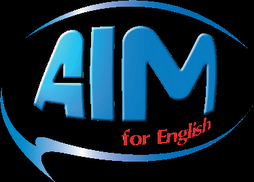Getting a Good Job (Part 2)
You’ve done it right so far. You have researched the opportunity, produced an excellent CV (or resumé), written a great covering letter, and it has all worked. They want you to come for an interview! Now read on.
The interview is your opportunity to do two equally important things. First, and most obviously, it’s your chance to move the company from an initial interest in you to a real desire to employ you. But secondly it is also your opportunity to assess whether you really want the job. It’s important to remember that the job may not be right for you. If you are out of work and desperate to resume your career it may be very difficult to make a dispassionate assessment, but you should try. Taking a job that isn’t right for you will eventually lead to failure, and you’ll be back where you started having wasted precious time and collected a hard-to-explain negative entry on your CV.
A job interview is a two-way selling process. You naturally want to sell yourself, but the company wants to sell itself. Please keep both these processes in mind throughout the preparations you make for the interview.
Your most important preparation should be a thorough re-examination of your research, and a careful assessment of what your strengths and weaknesses are as a possible holder of the job in question. You should be as realistic as you can, although there may very well be aspects of the job that don’t become clear before the interview, and your assessment will be incomplete.
Your strengths and weaknesses are very important, for two reasons. First, you will naturally want to bring your strengths out at interview, and it’s more likely that you will do so if you have thought about them in advance. But your weaknesses are also important. You use them to assess whether you really want the job. If the job turns out to lean heavily on your weaker areas rather than your strengths, you might find that you don’t enjoy it, and don’t do well at it.
At the interview itself it is unlikely that you will be asked directly about your strengths. The interviewer(s) will assume that you have pointed these out in your CV. However they may well ask you about your weaknesses. It is important that you answer this question honestly, fluently, and without completely ruining your chances of a job offer!
How to achieve these perhaps contradictory aims? Choose your weaknesses carefully! Don’t be negative about yourself. For example, if you don’t have experience of doing the job on offer, say something like;
“This job would be a step up for me. It’s a step I want to take, and I’m ready for it, but you need to be clear that I have not yet done precisely this job”.
Did you notice the key word “yet”?
With your display of honesty and confidence you are partway to converting a weakness (no experience of this job, at this level) into a strength (ambition, confidence, personal development potential).
Unfortunately all interviews are different, and the range of advice that could be given in an article like this is literally infinite. I’ll therefore make only one more observation. In the very specific circumstance that you are about to be interviewed in a language that is not your mother tongue, be aware of a whole range of additional pitfalls that await you.
Language is tricky, and there are very few people indeed who can be interviewed in a foreign language without making errors. You are going to make linguistic mistakes. Wrong words, poor structures, wrong register, cultural mistakes and more all lie in wait for the unwary interviewee. You must practice your interview with a native speaker, not once but several times, before you do it for real. The more important the potential job is for you, the more important is the practice.
If you are fortunate enough to live in Jakarta there is a friendly group of language professionals who can help you with the interview, and much more. Get in touch with AIM- belajar they can’t guarantee your success; in the end that’s up to you. But they can reduce the odds against you!
Tuesday, July 21, 2009
Subscribe to:
Post Comments (Atom)


No comments:
Post a Comment